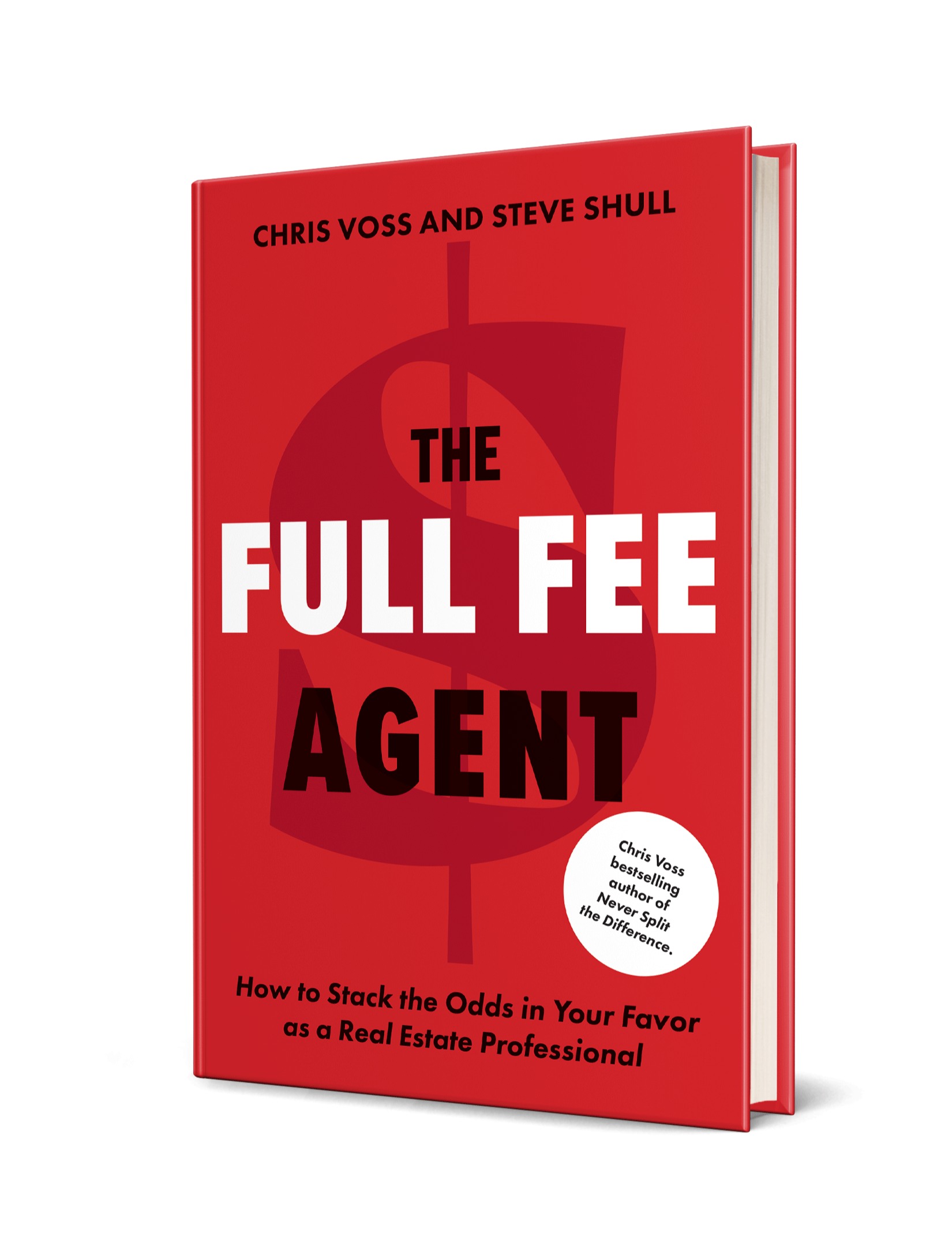When Clients Say "Just Tell Me What To Do"—The Ethics of Client Guidance
May 18, 2025
It's the moment every agent faces: Your client looks at you, overwhelmed by options, and pleads, "Just tell me what to do."
For most agents, this feels like a green light. After all, isn't this why they hired you? For your expertise? Your experience? Your advice?
But I'm here to tell you that this seemingly innocent request is actually one of the most critical ethical crossroads you'll face in your career.
How you respond reveals whether you're truly serving as a Trusted Advisor or sliding into the role of Master Manipulator—often without even realizing it.
The Expert Trap
Most of us have built our businesses on being "experts." We've been taught that our value lies in knowing the answers, in being decisive, in confidently telling clients what they "should" do.
This knowledge gap between us and our clients creates an inherent imbalance in influence. We understand market dynamics, transaction processes, and property valuation in ways clients typically don't.
That creates an internal pressure. We feel like our knowledge and expertise require that we tell our clients what they should do. The client feels pressure to follow the "expert" opinion.
But here's the uncomfortable truth: When we reflexively step in to make decisions for clients—even when they're begging us to—we're not serving them at the highest level.
The Uphill Reputation Battle
As real estate professionals, we face a particularly steep challenge when it comes to client trust. Our industry consistently ranks among the least trusted professions in consumer surveys.
Many, if not most, clients begin their relationship with us already in a defensive posture, watching carefully for signs of manipulation or self-interest they expect from "our kind."
This makes removing ourselves as a psychological threat even more crucial in real estate than in many other professions. The hurdle is higher; the scrutiny more intense.
Every interaction you have either reinforces or challenges that negative stereotype. When you use directive language like "you should" or "I think you need to," you inadvertently trigger those pre-existing suspicions. When you step in to make decisions clients are begging you to make, you're confirming their worst fears—that real estate is too complex for them to navigate without surrendering their autonomy to someone in an industry they fundamentally distrust.
This is why Tactical Empathy has become such a powerful force in transforming how elite agents approach client communication. It's the perfect framework for removing yourself as a threat from the very first moment of contact.
The Power and Responsibility of Trust-Based Influence
When you consistently use Tactical Empathy—listening deeply, articulating understanding, crossing to their side of the street—something remarkable happens. Clients begin to trust you at a profound level.
They drop their guard. They share more openly. Their fear dissipates.
And as this trust deepens, your influence naturally increases. What you suggest carries far more weight as the relationship develops.
With this trust-based influence comes extraordinary responsibility. The very same approach that built that trust can—if misused—become a more sophisticated form of manipulation.
Your client's "just tell me what to do" plea often comes after you've spent time building this trust. They feel understood by you in a way they rarely experience with other professionals. They're ready to hand over the reins completely.
And that's precisely the moment when your ethical compass is most critical.
The Vulnerability Spectrum
Different clients come to you with varying degrees of vulnerability based on their experience, knowledge, situation, and emotional state.
Picture a spectrum from low vulnerability (an experienced investor who understands the market well) to high vulnerability (an elderly seller facing a financial crisis or health issue forcing a move).
As client vulnerability increases, your ethical responsibility intensifies. The knowledge gap widens, the power imbalance grows, and the potential for unintended manipulation increases.
With highly vulnerable clients, the "just tell me what to do" plea becomes even more fraught with ethical complexity. They may be genuinely unable to process the information needed for truly informed consent.
Paradoxically, preserving their autonomy becomes more important as vulnerability increases. It may seem counterintuitive—you might feel that vulnerable clients need more direction—but ethical practice requires extra vigilance to ensure you're illuminating rather than directing.
Tools or Weapons? The Dual Nature of Tactical Empathy
The tools of Tactical Empathy are perfectly designed for ethical communication at the highest level. But like any powerful tools, they can be misused.
Take Labels, for instance—they can either illuminate or manipulate depending on your intention.
With buyers considering making an offer on a property with multiple offers, you could ethically respond:
"It sounds like you're trying to balance making a timely decision with ensuring you have all the information you need."
This Label neutrally acknowledges the dilemma they're facing without pushing them in either direction.
Or you could unethically respond:
"It seems like you're confused about the value this property represents at this price."
This Label suggests the client lacks understanding and exploits the knowledge gap to push them toward your preferred outcome.
Even the simple Mirror can be weaponized. If a client says, "We love the house, but we're concerned about the school district," and you selectively mirror back only "Love the house," you're subtly directing the conversation away from legitimate concerns that need exploration.
The Ethical Response to "Just Tell Me What To Do"
So what does an ethical response look like when a client begs you to make their decision?
"It sounds like you're really interested in my guidance. I will absolutely share all of my thoughts with you. Before I do that, would you be opposed to walking me through what you're thinking might be a good idea?"
This response:
- Acknowledges their request for guidance
- Reassures them that you will provide your perspective
- Uses a No-oriented question to invite them to think and speak first
- Maintains their decision-making autonomy
After they share, IF there are important aspects they should consider, you might continue:
"Would you be opposed to me sharing some options you may want to consider?"
And, as always, reinforce their decision-making authority with, “How would you like to approach this decision to ensure it aligns with your family's long-term goals?"
This keeps responsibility where it belongs: decisions with the client, thorough landscape illumination with you.
The Master Communicator vs. The Master Manipulator
As you develop mastery with these powerful tools, you face a fundamental choice: Will you become a Master Communicator or a Master Manipulator?
The Master Communicator:
- Uses tools to create clarity
- Serves client interests first
- Illuminates the complete landscape
- Preserves autonomy consistently
- Builds sustainable trust
The Master Manipulator:
- Uses tools to control outcomes
- Serves self-interests first
- Provides selective information
- Directs through subtle pressure
- Creates transaction-focused results
The tools are the same. The intention behind them makes all the difference.
The Four Ethical Tests
Next time a client says "just tell me what to do," run your response through these four tests:
- Am I preserving their decision-making autonomy?
- Am I serving their interests, even at cost to mine?
- Would I be comfortable if they knew my full thinking?
- Am I keeping responsibility where it belongs—on both sides?
When we resist the urge to take control—even when clients are begging us to—we honor them as capable decision-makers. We respect their right to determine their own path based on complete information.
That's the difference between a transaction-focused agent and a true Trusted Advisor. It's also the difference between reinforcing our industry's poor reputation and transforming it, one ethical interaction at a time.
So the next time a client looks at you with pleading eyes and says, "Just tell me what to do," remember: your response will define not just that moment, but the entire character of your professional practice.
Get free coaching in your inbox every week
Stay focused on what truly matters with key highlights and insights from all our coaching programs.


